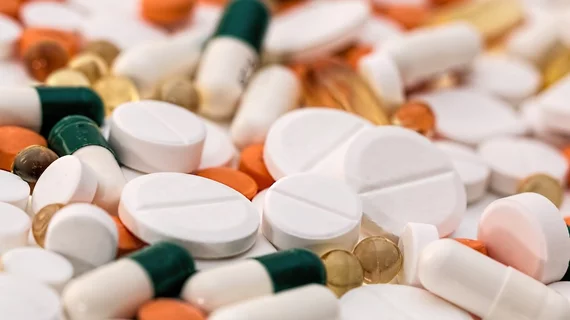CVS settles opioid case with Florida for $484M
CVS Health has settled with the state of Florida for $484 million to resolve claims for opioid medications filled at CVS pharmacies.
The agreement settles all opioid claims against it by Florida for the amount, with the pharmacy chain and health company paying the $484 million settlement over 18 years. CVS will no longer be a defendant in Florida's opioid lawsuit, scheduled for trial in April 2022.
"Putting these claims behind us is in the best interest of all parties and helps sharpen our focus on delivering a personalized, connected healthcare experience for the millions of consumers who rely on us," Thomas Moriarty, chief policy and external affairs officer and general counsel, CVS Health, said in a statement. "We look forward to continuing our longstanding partnership with the State of Florida in providing programs, services and solutions to reduce the illegitimate use of opioid medications."
CVS is not the only company that settled with Florida. Teva Pharmaceuticals Industries and Allergan also made agreements, bringing Florida’s total settlement to $870 million.
Florida is expected to use the funds to fight the opioid epidemic, including prevention efforts, treatment or recovery services.
“The opioid epidemic is wreaking havoc on Florida families. Since my first day in office, I have worked tirelessly to hold accountable those companies who helped start this crisis — with today’s announcements we have now secured an additional $870 million to help mitigate the harm caused to Florida’s communities,” Florida Attorney General Ashley Moody said in a statement. “The monies secured from CVS, Teva, Allergan and Endo will help further our efforts to remediate the harm and suffering of Floridians.”
Teva, an Israeli multinational pharmaceutical company, will pay Florida nearly $195 million, and Allergan, a pharmaceutical company that acquires, develops, manufactures and markets brand name drugs and medical devices, will pay more than $134 million. The settlements resolve claims against the companies for their respective roles in the opioid epidemic. Teva will also provide $84 million worth of its generic NARCAN nasal spray to the state.
Related Opioid Crisis Content:
President Biden outlines new COVID plan in state of the union address
Johnson & Johnson settles opioid case with New York for $230M
Large health system paying record $7.75M for carelessness with pain pills
$25M more going to rural health orgs fighting the opioid crisis
How AI, Twitter can improve our understanding of the opioid epidemic
Opioid epidemic cost federal government $26B in lost tax revenue over 16 years
Opioid epidemic may have new nemesis in AI-based ‘deep reinforcement learning’

